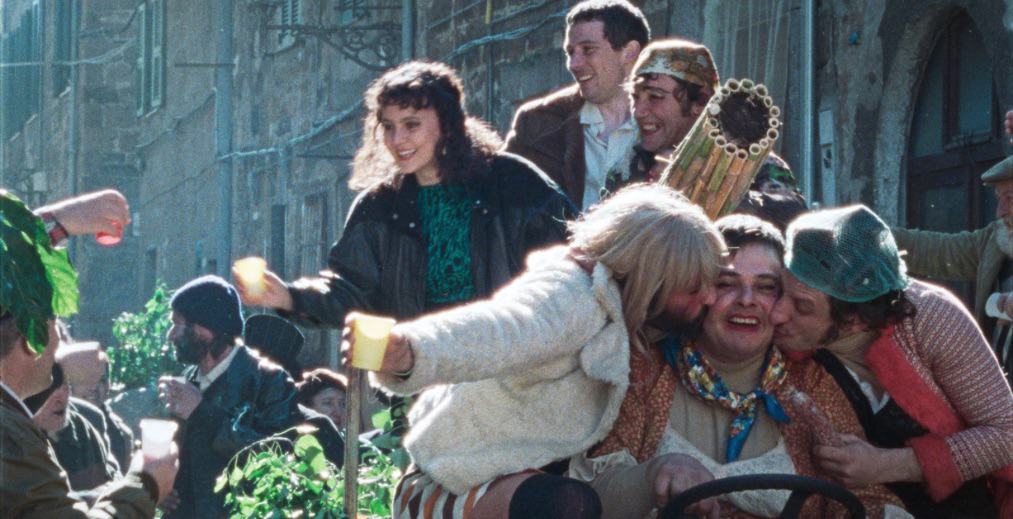Director Alice Rohrwacher’s latest, La Chimera, is a beguiling yet enchanting exploration of magical realism. With assured, playful direction that speaks to Rohrwacher’s flare while homaging classic styles, the film imbues itself with whimsy even as it tackles headier topics. Class discrepancy, the economic elite, and grief all weave into the story’s foundation. And yet, the film never loses its fableistic touch, the spiritual, enigmatic eye too strong to fully immerse viewers in the gravity of the film’s plot.
Josh O’Connor stars as Arthur, an Englishman living in Italy for an undisclosed period. Long enough to have his roots but not long enough for those around him not to refer to him as “the Englishman.” The period drama sets itself in the 1980s, where Arthur, an archeologist, leads a merry band of vagabonds who find themselves in an international network of stolen Etruscan artifacts. However, their pursuits are hardly altruistic — or legal. Instead, many of them led them to the black market, a decision that had apparent consequences. When the film begins, Arthur has just been released from prison, making his solitary journey home.
The film keeps its narrative sparse, preferring visual tells and dreamlike sequences to color in the story. It’s too long, with a second half extending further than needed. There’s a chilliness too to La Chimera due to all we don’t know. However, that gives the film its natural intrigue. O’Connor embodies the wayward man looking for a life beyond himself, happy to exist even if he doesn’t actively pursue life or any means to sustain one. His shoes are worn through, and he sleeps huddled next to small stoves in abundance homes. He wears light linen despite the brisk weather, wearing thin underneath them. Part of this is to demonstrate an economic divide. But, even more so, it paints the picture of a man masquerading as someone removed from society so that nothing can stick and no expectation can be made of him.
The plot is thin and observational. We never learn much about the Arthur who existed pre-film. There are bits and pieces — time spent in prison. There’s the death of a woman whom he loved, whose mother (Isabella Rossellini) he spends his days in the empty, drafty halls of her house. The red string of fate tethers his dreams of said woman to the earth from which he’s pulled. His gravitational force bound to the tombs he and his crew excavate. And in a way, the film captures this character as if he’s moving through motions of purgatory.

“I thought it was a ghost,” someone says in reference to him. It’s said that he doesn’t seek the treasure of Italy’s history for the sake of monetary gain. Instead, he sees it as looking for a passage to “the afterlife.” Perhaps the closest he comes to life is when immersed in the tombs of those who passed and the artifacts left to tether their souls to the corporeal world. Regardless, his story and the hints of grief make the narrative worthwhile. Everything else, including a potential romance with a tone-deaf student of Rossellini’s Flora, lacks energy. What’s more interesting is how the student hides her children in Flora’s empty home. The subtle storytelling about class discrepancy is insightful, even if it could’ve affected to be bolder in its presence.
Because one of the most beautiful notes of the film is when Arthur meets with a group of women and their children standing near train tracks, living in the abandoned train station. The station doesn’t belong to anybody. Or, rather, it belongs to everybody. It, like life, is temporary. These individual pockets of the story that dabble greater with theme than a linear narrative are where the film sings.
Though the direction is no slouch. There’s an apparent neorealist influence to Rohrwacher’s approach. Everything from the costuming to the editing speaks to a clear love of classic cinema. The sparsely used but effective sped-up frame rate speaks to the silent era. The mix of shooting on 35mm, 16mm, and Super 16 shows respect for the medium and honoring the past. It helps enshroud La Chimera in mystery. The film, like its anti-hero, exists in a space between time. Though the touch of modernity is present, a timeless essence breathes life into the film.
Anchored by a strong, enigmatic performance by O’Connor, La Chimera is another striking film from Alice Rohrwacher. From the decadent, naturalist sets to the sound design that holds our ear firm to the wills of nature, it’s a strong, fully formed story that withers only under the weight of its ambition. Regardless, the strengths are formidable enough to make looking past any shortcomings (or weak second acts) easy.
La Chimera is out now in theaters via NEON.
La Chimera
-
Rating - 8/108/10
TL;DR
Anchored by a strong, enigmatic performance by Josh O’Connor, La Chimera is another striking film from Alice Rohrwacher. From the decadent, naturalist sets to the sound design that holds our ear firm to the wills of nature, it’s a strong, fully formed story that withers only under the weight of its ambition.







